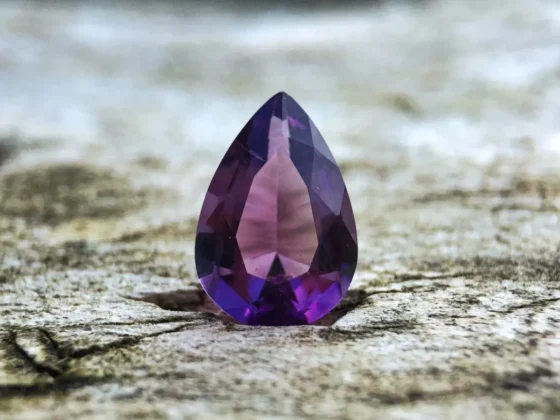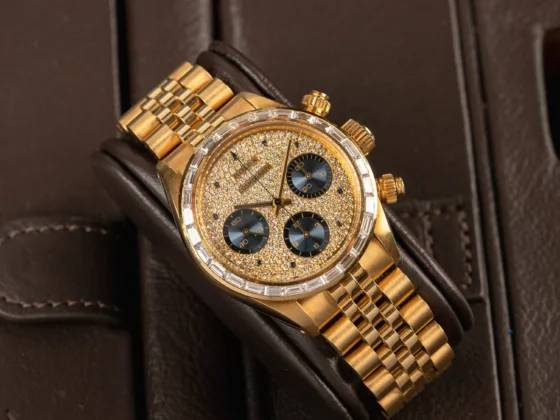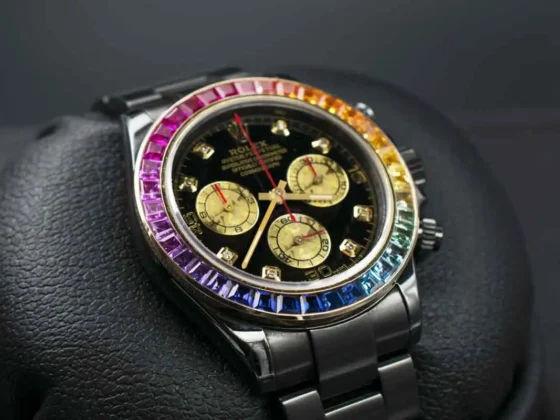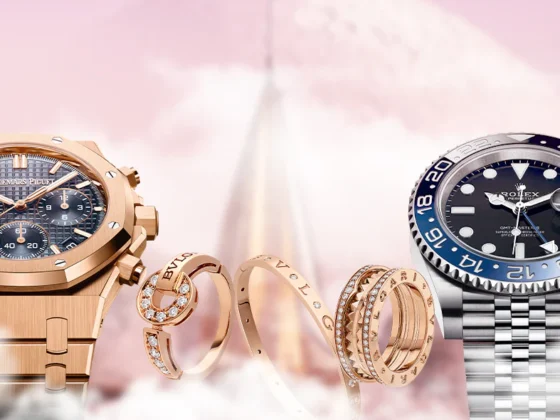As consumers become increasingly conscious of the environmental and social impact of their purchases, the luxury jewelry industry is evolving to meet the growing demand for ethically sourced materials. Gone are the days when aesthetics alone defined the value of a luxury item—today, the ethical journey of each gem and metal is just as important as the craftsmanship. Top jewelry brands are leading this movement by ensuring their materials are sourced responsibly, safeguarding both human rights and the environment.
This article will explore how the luxury jewelry industry is addressing the demand for ethical sourcing and shine a spotlight on brands like Restivo Diamonds, which offers GIA-certified diamonds and gemstones that meet the highest standards of ethical and sustainable sourcing.
How the Luxury Jewelry Industry is Addressing the Demand for Ethical Sourcing
As consumers become increasingly conscious of the environmental and social impact of their purchases, the luxury jewelry industry is evolving to meet the growing demand for ethically sourced materials. Gone are the days when aesthetics alone defined the value of a luxury item—today, the ethical journey of each gem and metal is just as important as the craftsmanship. Top jewelry brands are leading this movement by ensuring their materials are sourced responsibly, safeguarding both human rights and the environment.
This article will explore how the luxury jewelry industry is addressing the demand for ethical sourcing and shine a spotlight on brands like Restivo Diamonds, which offers GIA-certified diamonds and gemstones that meet the highest standards of ethical and sustainable sourcing.
The Rising Demand for Ethical Sourcing in Luxury Jewelry
In recent years, there has been a significant shift in consumer attitudes toward sustainability and ethical sourcing. A growing number of luxury jewelry buyers are prioritizing brands that commit to responsible practices, from mining and gemstone sourcing to production and packaging. According to industry reports, sustainability and transparency are now top priorities for millennial and Gen Z consumers, who are driving this change.
These ethically minded buyers are no longer content with just knowing a piece is beautiful—they want to be assured that it was created without causing harm to the environment or exploiting vulnerable communities. As a result, luxury brands are stepping up to meet these expectations by providing traceable, conflict-free materials and transparent supply chains.
The Role of Certifications in Ethical Jewelry
One of the most effective ways to guarantee ethical sourcing is through certifications. Certifications such as the Kimberley Process, Fairmined, and GIA (Gemological Institute of America) provide consumers with the confidence that their jewelry was sourced responsibly. These organizations rigorously assess the entire supply chain, from the mines where precious metals and gemstones are extracted to the artisans who craft the final pieces.
Restivo Diamonds, for example, is a luxury jewelry brand that exemplifies this commitment to ethical sourcing. Known for their GIA-certified diamonds, Restivo ensures that every stone in their collection is free from conflict and adheres to the highest ethical standards. GIA certification also guarantees that the diamonds are of exceptional quality, with full transparency on the stone’s origin, cut, and carat weight, giving buyers both peace of mind and confidence in the value of their purchase.
Conflict-Free Diamonds: What Does It Mean?
The term conflict-free diamonds refers to stones that have not been mined in war zones and sold to finance armed conflicts. These diamonds, also known as blood diamonds, were once a major issue in the jewelry industry, but thanks to efforts such as the Kimberley Process, the trade of conflict diamonds has significantly diminished.
The Kimberley Process is a certification scheme that ensures diamonds crossing international borders are conflict-free. It has been instrumental in reducing the flow of conflict diamonds, and today, over 99% of diamonds on the market are certified as conflict-free. However, some critics argue that the Kimberley Process doesn’t address all human rights and environmental concerns in diamond mining.
This is where brands like Restivo go above and beyond. Restivo sources diamonds from responsible mining operations that meet rigorous ethical and environmental criteria, ensuring that their gemstones not only comply with the Kimberley Process but also support sustainable development and fair labor practices.
Fairmined Gold and Ethical Metals
While diamonds often dominate the conversation about ethical sourcing, the extraction of precious metals such as gold and platinum also has a significant environmental and social impact. Mining for these materials can lead to deforestation, water pollution, and poor working conditions for miners.
To combat these issues, many luxury jewelry brands are turning to Fairmined or Fairtrade gold, which guarantees that the metals are sourced from responsible, small-scale mining operations. These certifications ensure that miners are paid fair wages and that mining activities do not harm the environment.
Chopard, a leader in the sustainable luxury space, has been using 100% ethical gold in its jewelry and watches since 2018. This initiative, known as the Journey to Sustainable Luxury, is part of Chopard’s broader commitment to sustainability and ethical sourcing.
Restivo Diamonds: A Leader in Ethical Luxury
As the demand for ethical sourcing grows, Restivo Diamonds has positioned itself as a leader in this movement. The brand’s commitment to using only GIA-certified diamonds ensures that their stones are not only of the highest quality but also meet strict ethical standards. Restivo’s diamonds are sourced from conflict-free zones and undergo rigorous evaluation to ensure they are free from any human rights abuses.
In addition to diamonds, Restivo also prioritizes the use of ethically sourced metals. By partnering with suppliers who adhere to responsible mining practices, Restivo ensures that every piece in their collection embodies both luxury and social responsibility. Their bespoke craftsmanship allows customers to design one-of-a-kind pieces, knowing that their custom jewelry has been created with the utmost respect for the planet and the people involved in its production.
How Technology is Enhancing Transparency
Another key development in ethical sourcing is the use of technology to enhance transparency in the supply chain. Blockchain technology, for instance, is being adopted by some luxury brands to provide an immutable record of a gemstone or metal’s journey from mine to market. This allows consumers to trace the origins of their jewelry and verify that it has been sourced responsibly.
Brands like De Beers have introduced platforms like Tracr, a blockchain-based tool that tracks the journey of diamonds, providing transparency and peace of mind to consumers. These innovations are a game-changer in ensuring that ethical sourcing is not just a marketing promise but a verifiable fact.
The Future of Ethical Sourcing in Luxury Jewelry
As ethical sourcing becomes increasingly important to luxury consumers, brands must continue to adapt and innovate. Sustainability and social responsibility will play a crucial role in shaping the future of the luxury jewelry industry. We can expect to see more brands adopting certified and traceable sourcing practices, with greater transparency in their supply chains.
Luxury buyers are not only purchasing a piece of jewelry but also investing in the values that the brand represents. For many, the knowledge that their jewelry was sourced responsibly adds an extra layer of meaning and value to their purchase.
Conclusion
The luxury jewelry industry is at a turning point, with ethical sourcing and sustainability emerging as non-negotiable factors for discerning consumers. As brands respond to the growing demand for transparency, certifications like GIA and Fairmined are becoming essential markers of quality and responsibility.
Restivo Diamonds is at the forefront of this movement, offering GIA-certified, conflict-free diamonds and ethically sourced metals in their bespoke creations. By prioritizing both luxury and ethics, Restivo sets an example for the industry and meets the expectations of today’s socially conscious buyers.
As the future of luxury jewelry continues to evolve, it is clear that ethical sourcing will remain a cornerstone of the industry, ensuring that every beautiful piece of jewelry also carries a story of integrity, respect, and responsibility.





